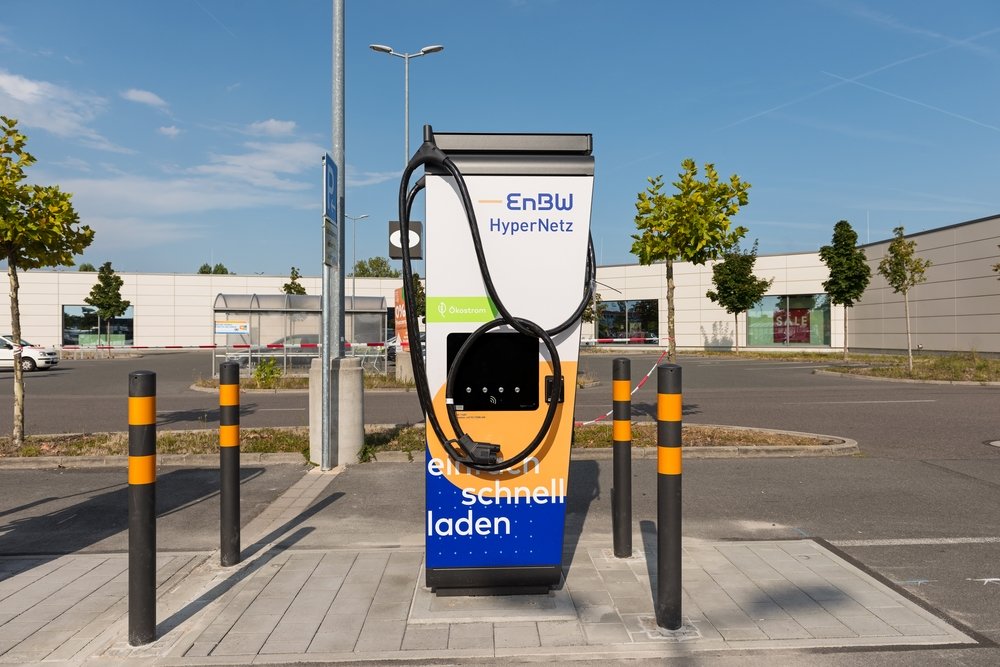An unusual concept is causing controversy in Stuttgart’s city center. Two large fast-charging stations operated by EnBW at the university and at Rotebühlplatz are hardly attracting electric cars anymore. Although the charging points are centrally located, many users have observed that they often remain empty. The reason for this is not the electricity price, but the mandatory parking ticket. (stuttgarter-zeitung: 29.08.25)
Bollards block direct access with parking ticket
EnBW and the Baden-Württemberg Parking Authority have installed bollards to prevent combustion engine drivers from using the charging bays as long-term parking spaces. However, this means a detour for electric car drivers. They must enter via the entrances to the parking lots at Rotebühlhof or Keplerstraße. These parking policies require a parking ticket in addition to charging.

The costs add up. A half-hour charging session, in addition to the electricity charges, incurs between €1.50 and €1.80 for parking. Those who stay longer pay twice as much. Users find this a burden and call it absurd: “If this continues, I’ll soon be able to drive a gasoline car again.” The additional parking ticket is therefore attracting particularly strong criticism.
Criticism of the fast charging station
Many drivers feel disadvantaged by the combination of charging fees and parking tickets. Some are switching to other charging stations in the surrounding area. What’s particularly annoying is that the rapid charging station is actually intended for short stops. Instead, the costs are higher than for a traditional fuel stop.
In forums like GoingElectric, users also report that EnBW’s parking fee is often cheaper than a regular parking rate in the city center. As a result, some drivers are simply abusing the charging stations as cheap parking spaces. This is precisely where the new regulation, which is intended to prevent abuse, comes into play.
Measures at the charging point
EnBW and its operator, PBW, emphasize the need to keep every charging point clear. The operators envision a rapid charging station functioning similarly to a gas pump. Anyone who taps into the charging station can drive off again after a short time. However, practice has shown that electric cars have been parked at the charging point for hours, often without actively charging.
The bollards are considered a temporary solution. Starting in September, PBW plans to return to free access. Parking attendants will then consistently monitor the areas. Anyone parked at the charging point without authorization will face a fine of at least €55.
Outlook for e-mobility
Whether drivers will return remains unclear. Many are already avoiding downtown charging stations because they don’t want to pay additional fees. This raises the question of attractive conditions for the development of e-mobility in Stuttgart. Charging points should ultimately create incentives and not be seen as a cost trap.
The coming weeks will show whether the planned controls will actually alleviate the problem. Users are hoping for a simple solution: charging at a fast-charging station without bureaucratic hurdles and without double the surcharge. This is the only way the charging infrastructure can build trust.
